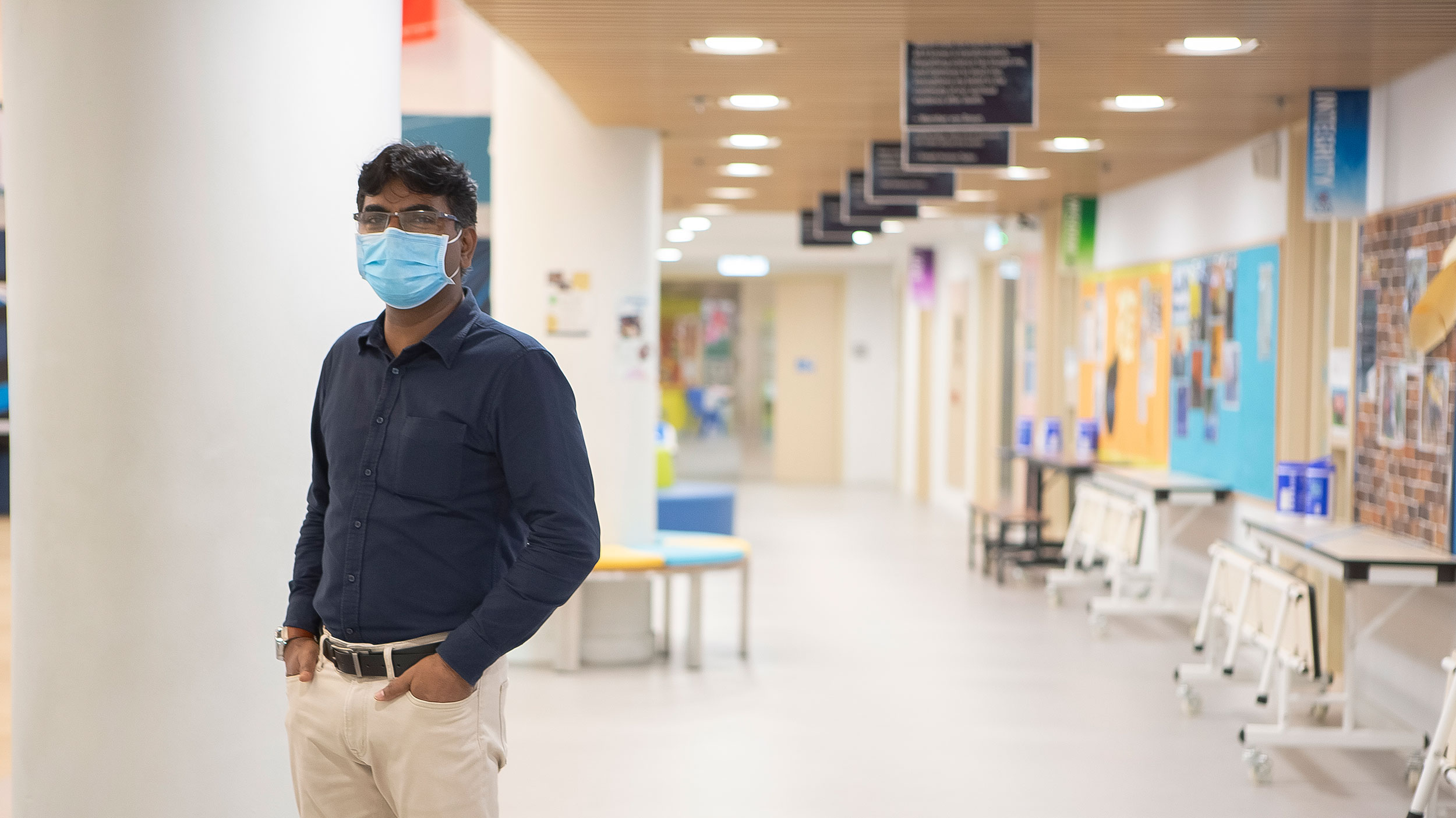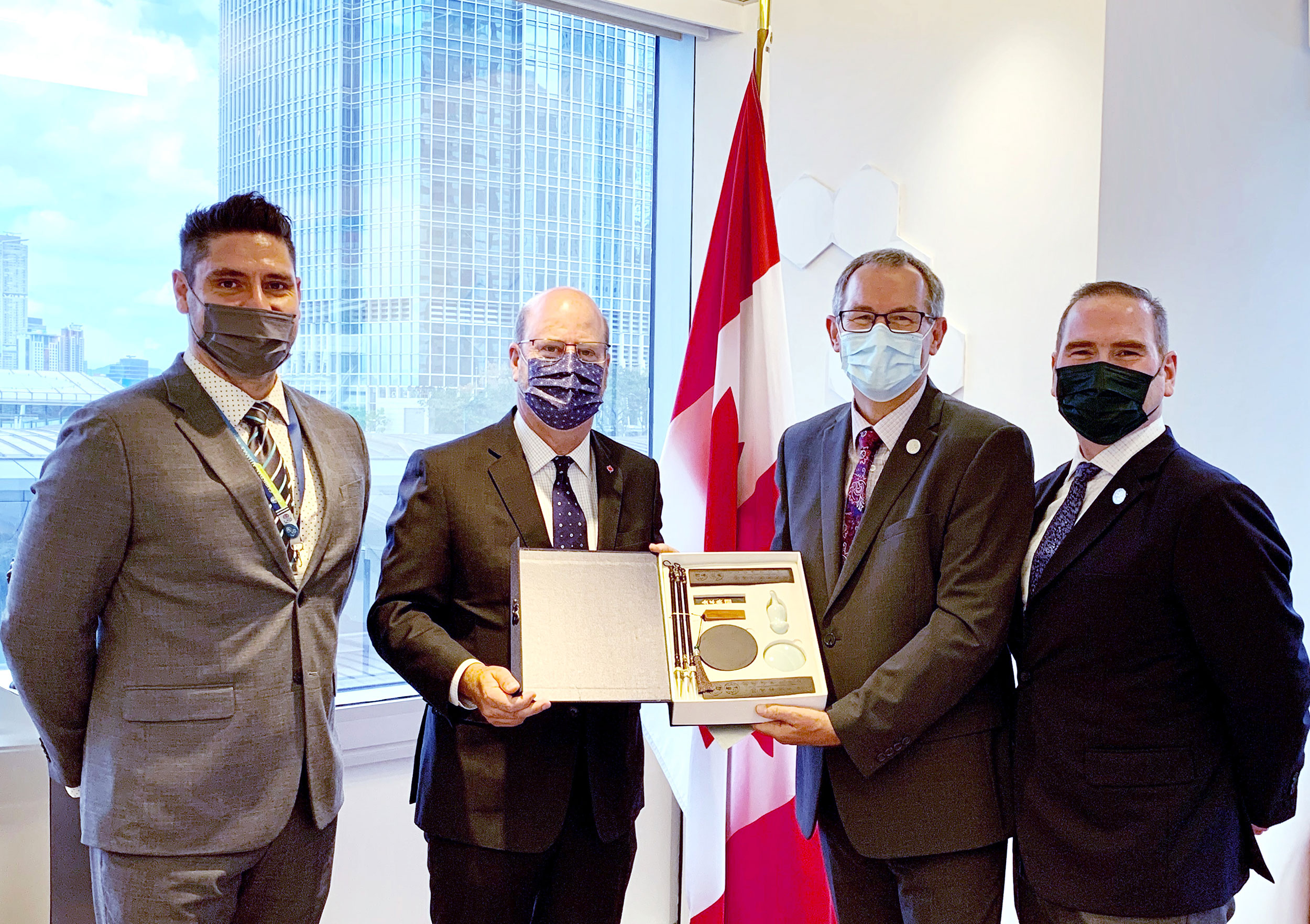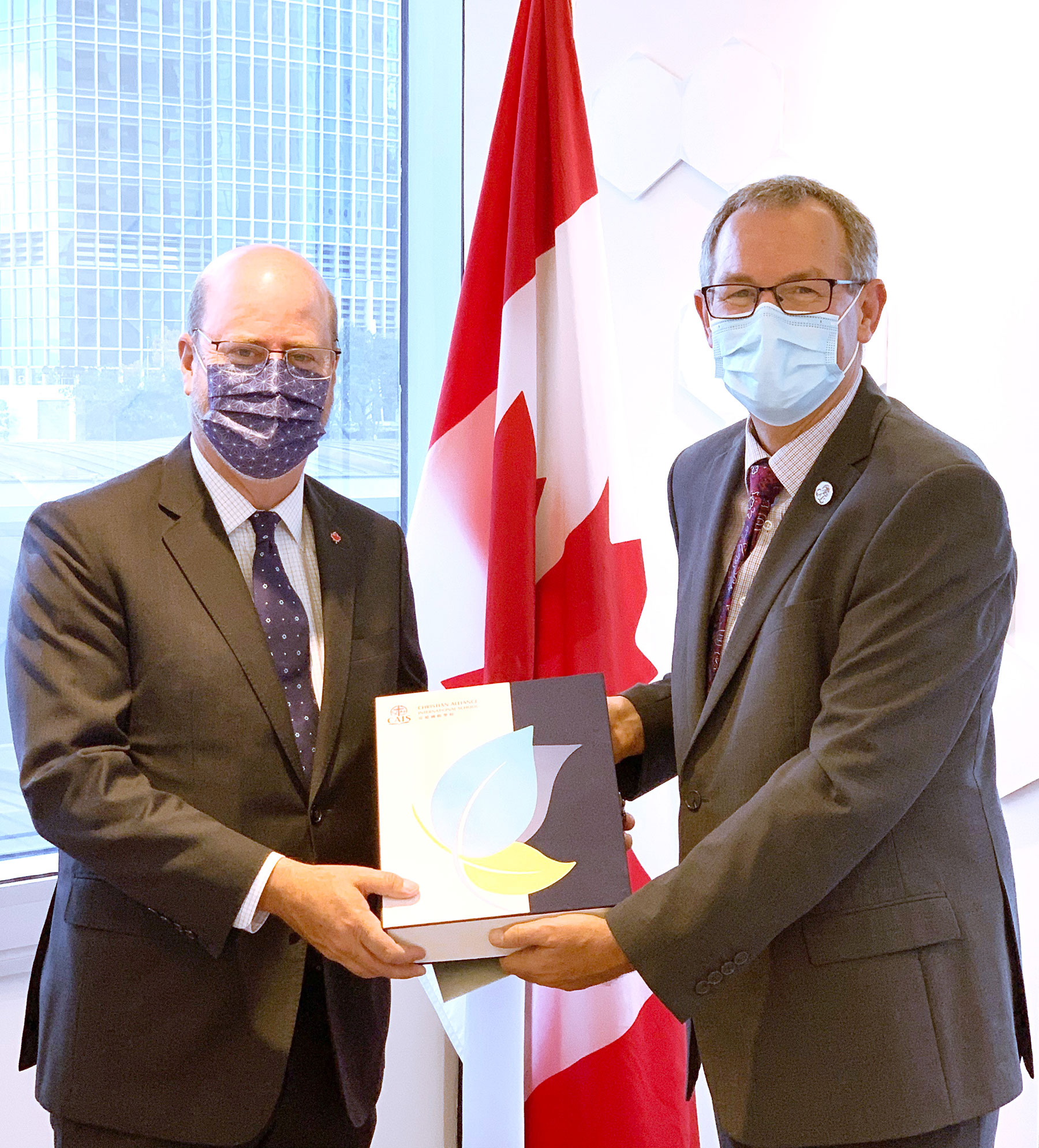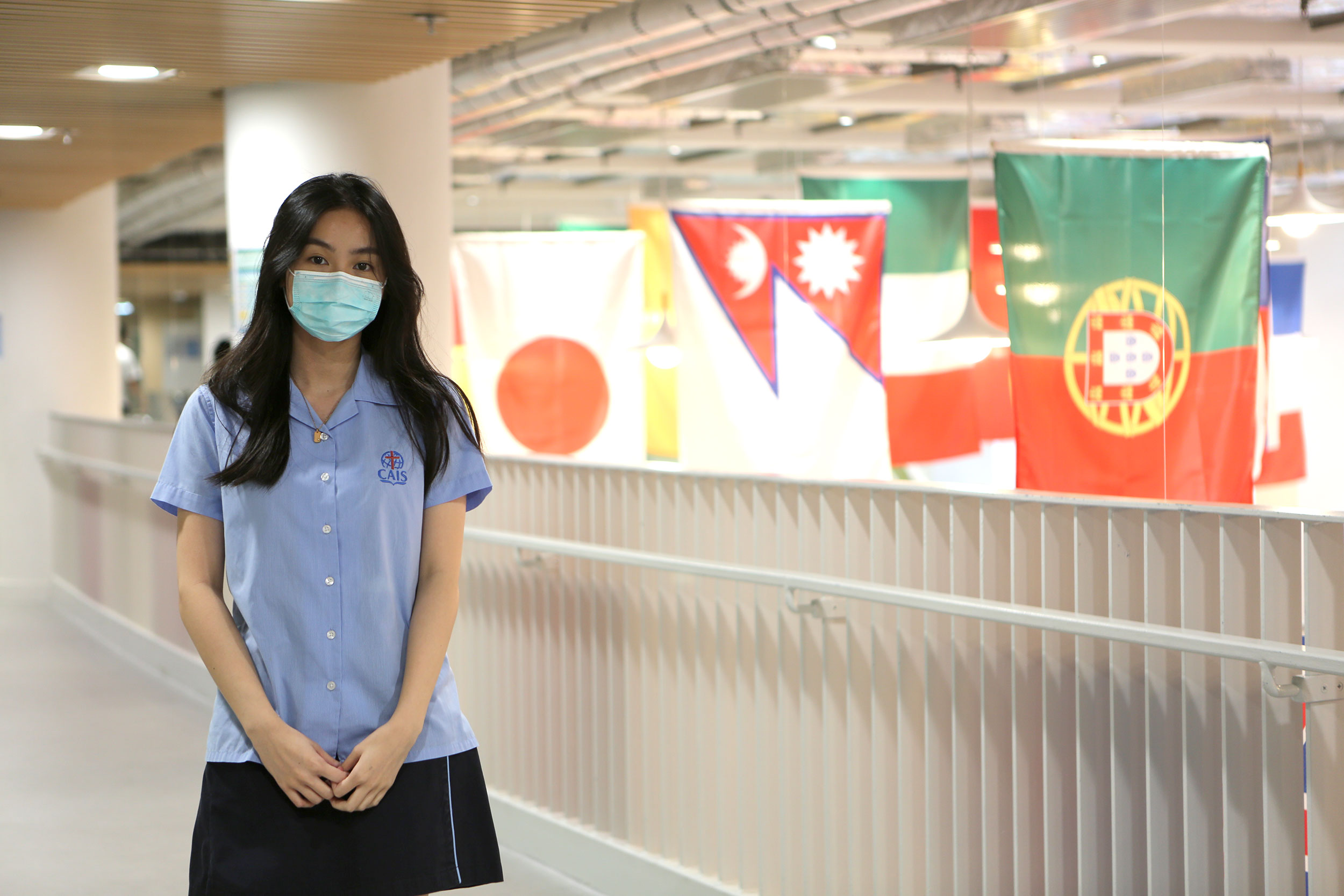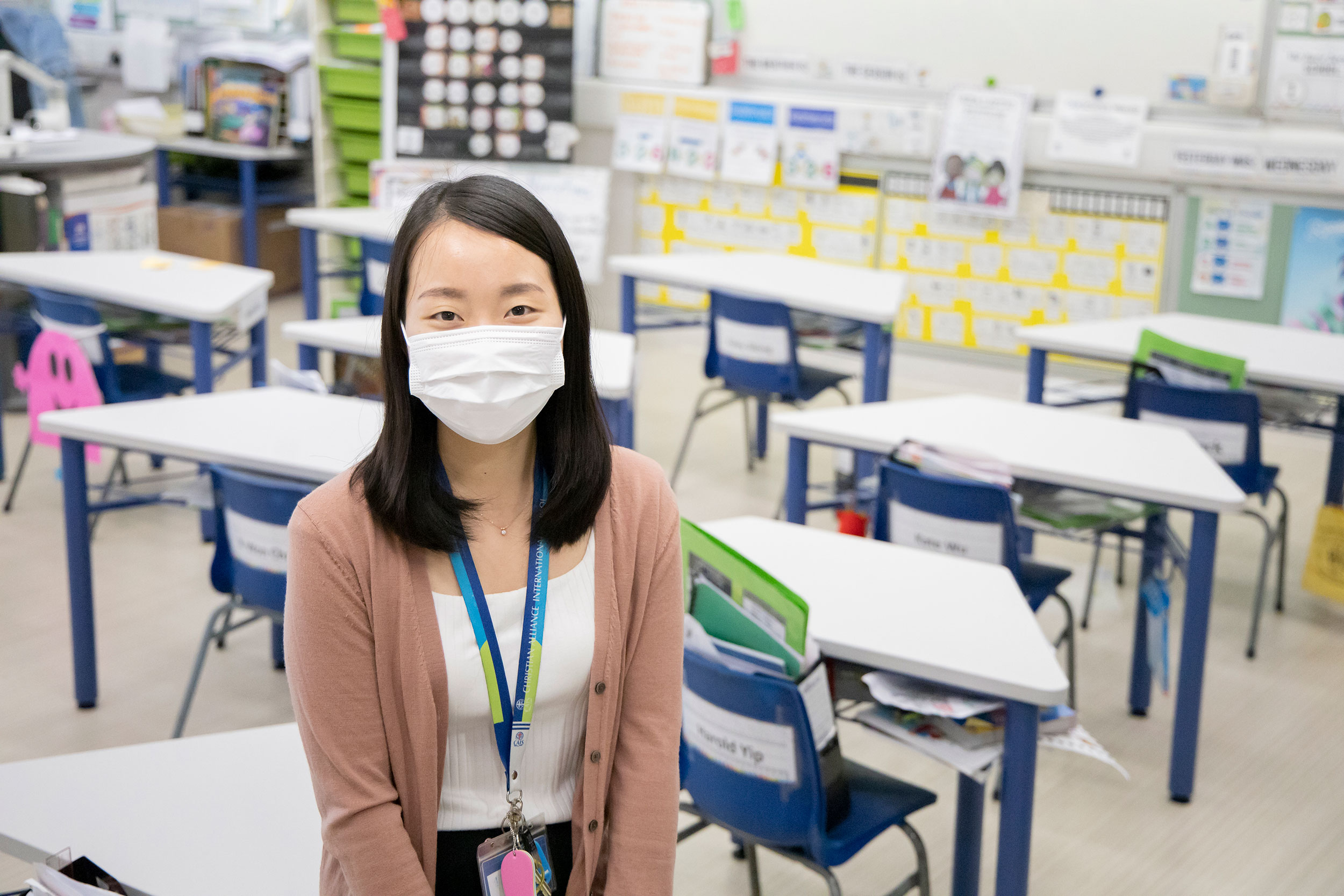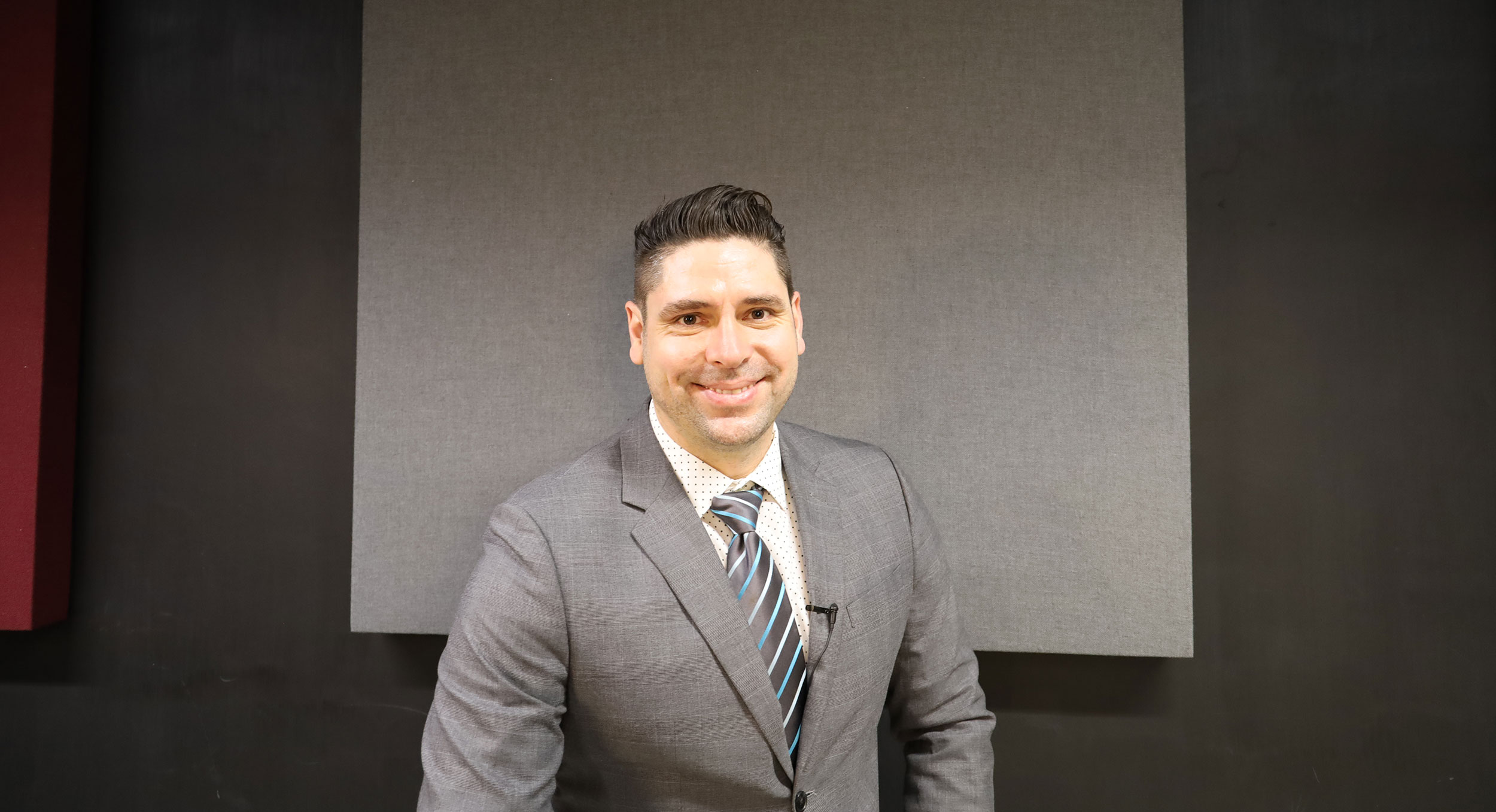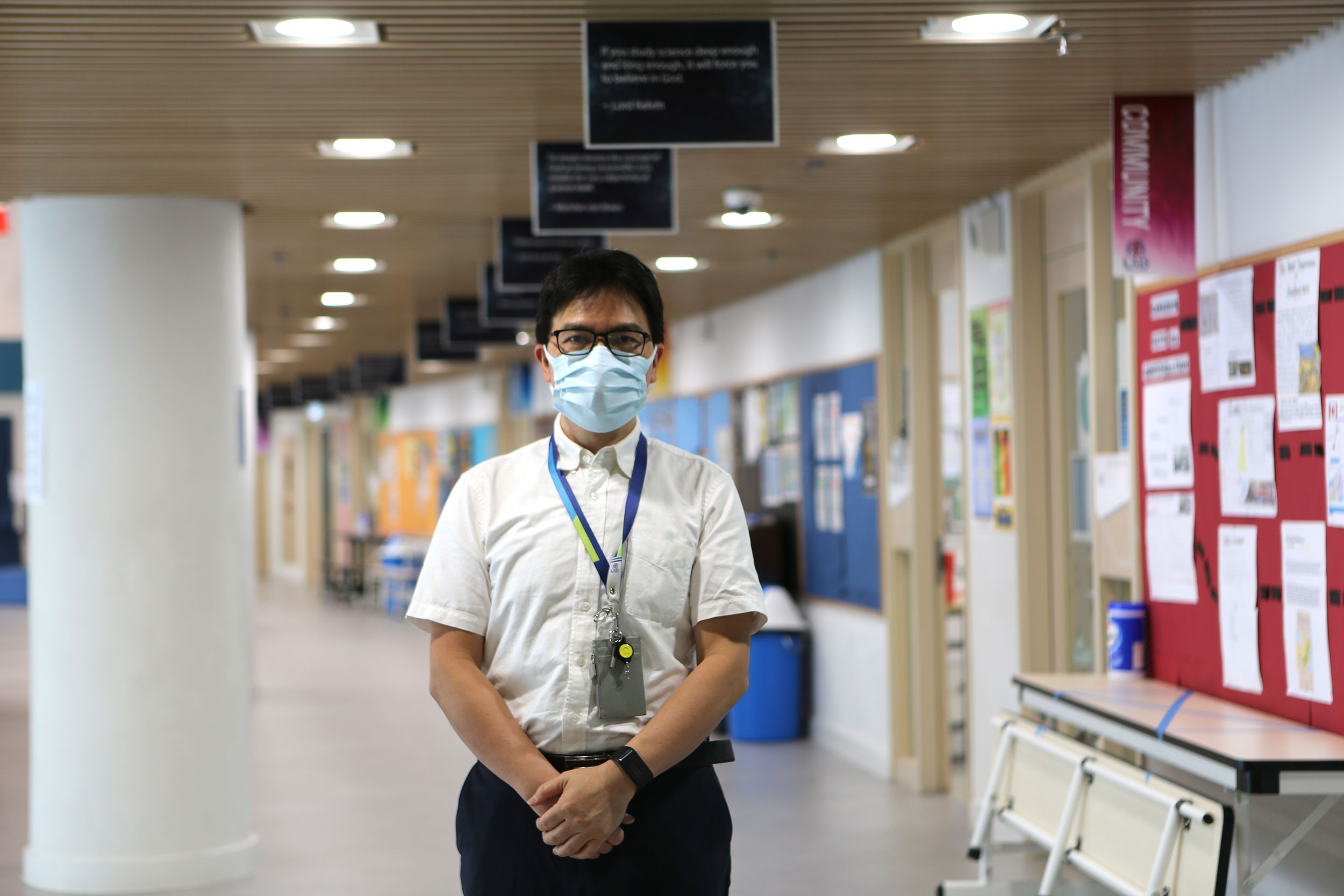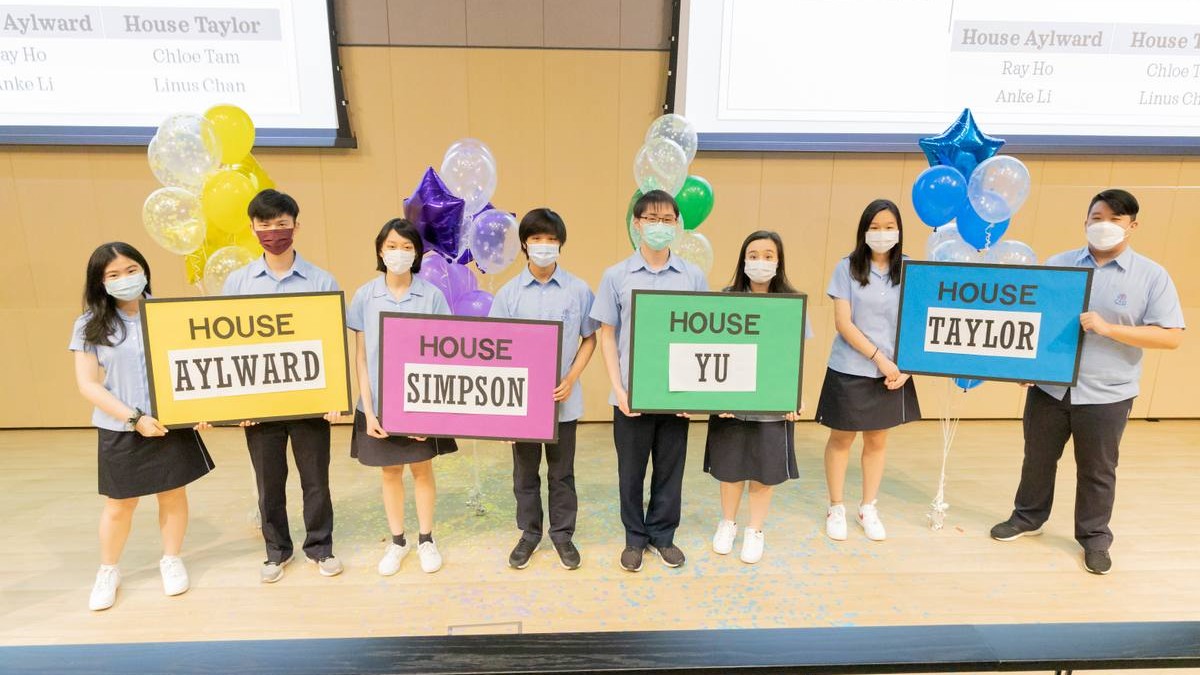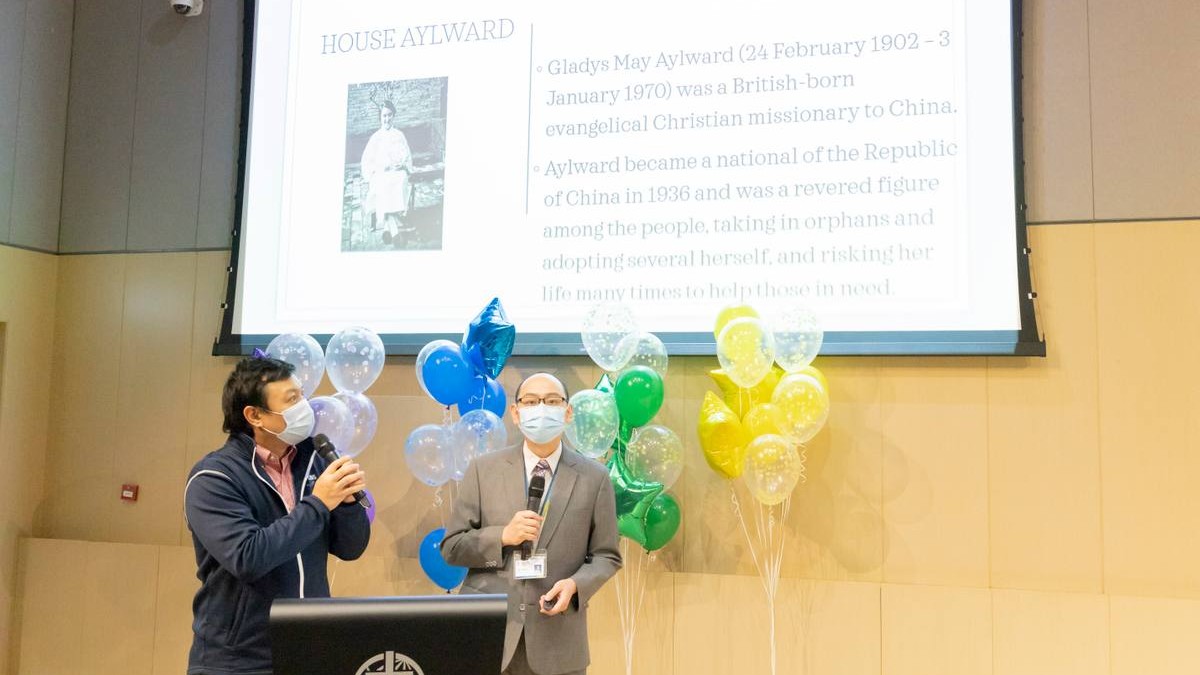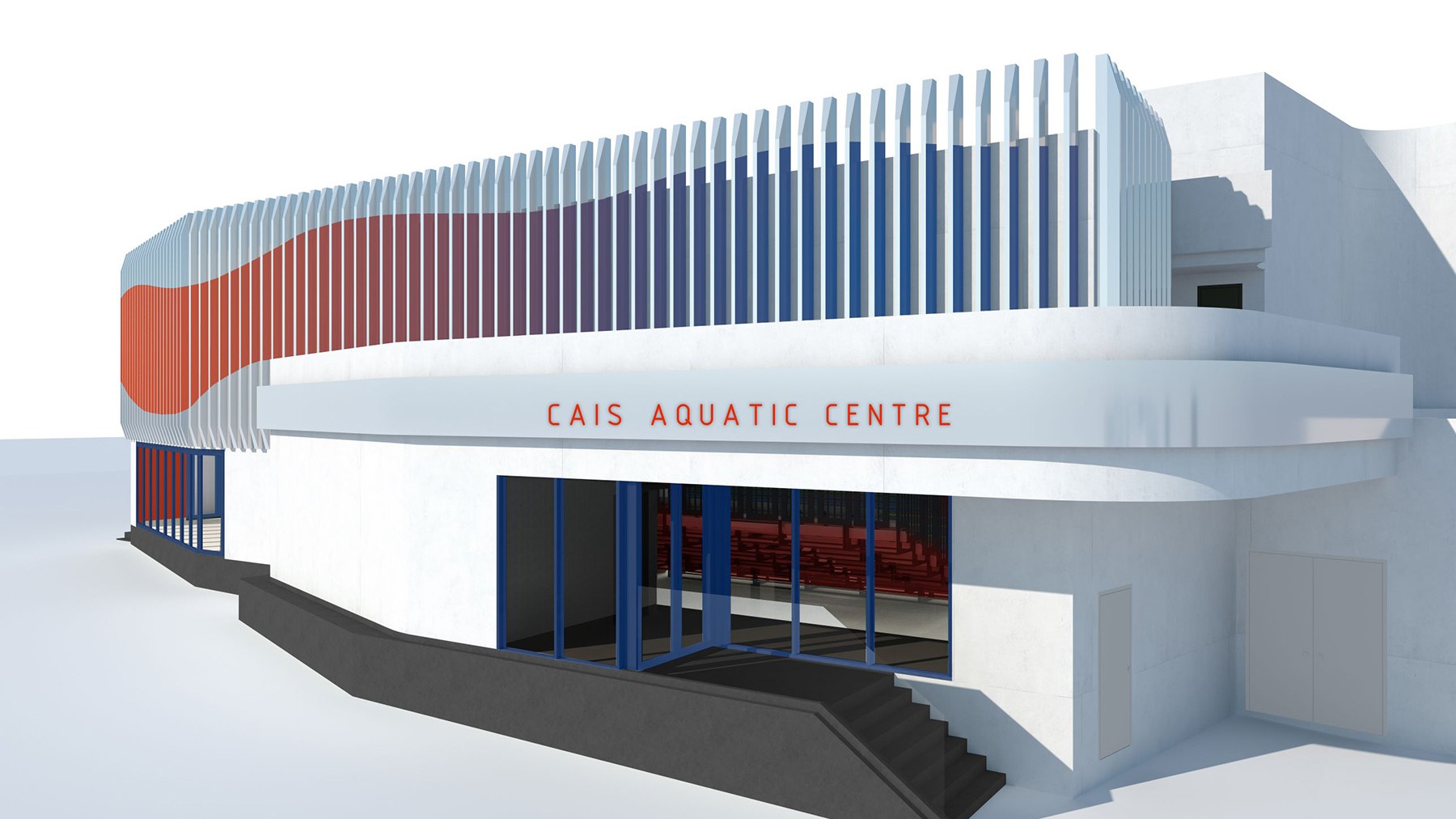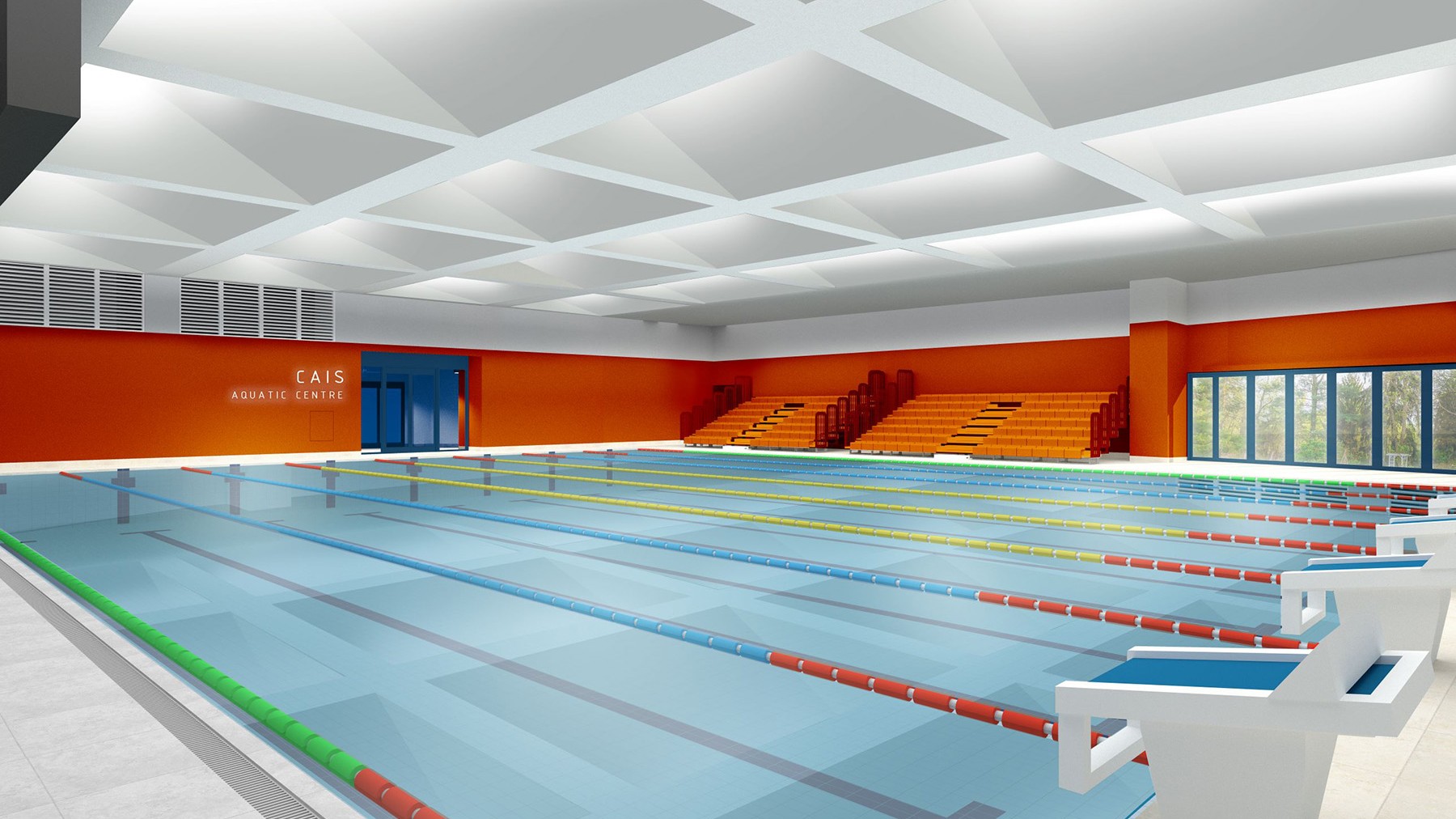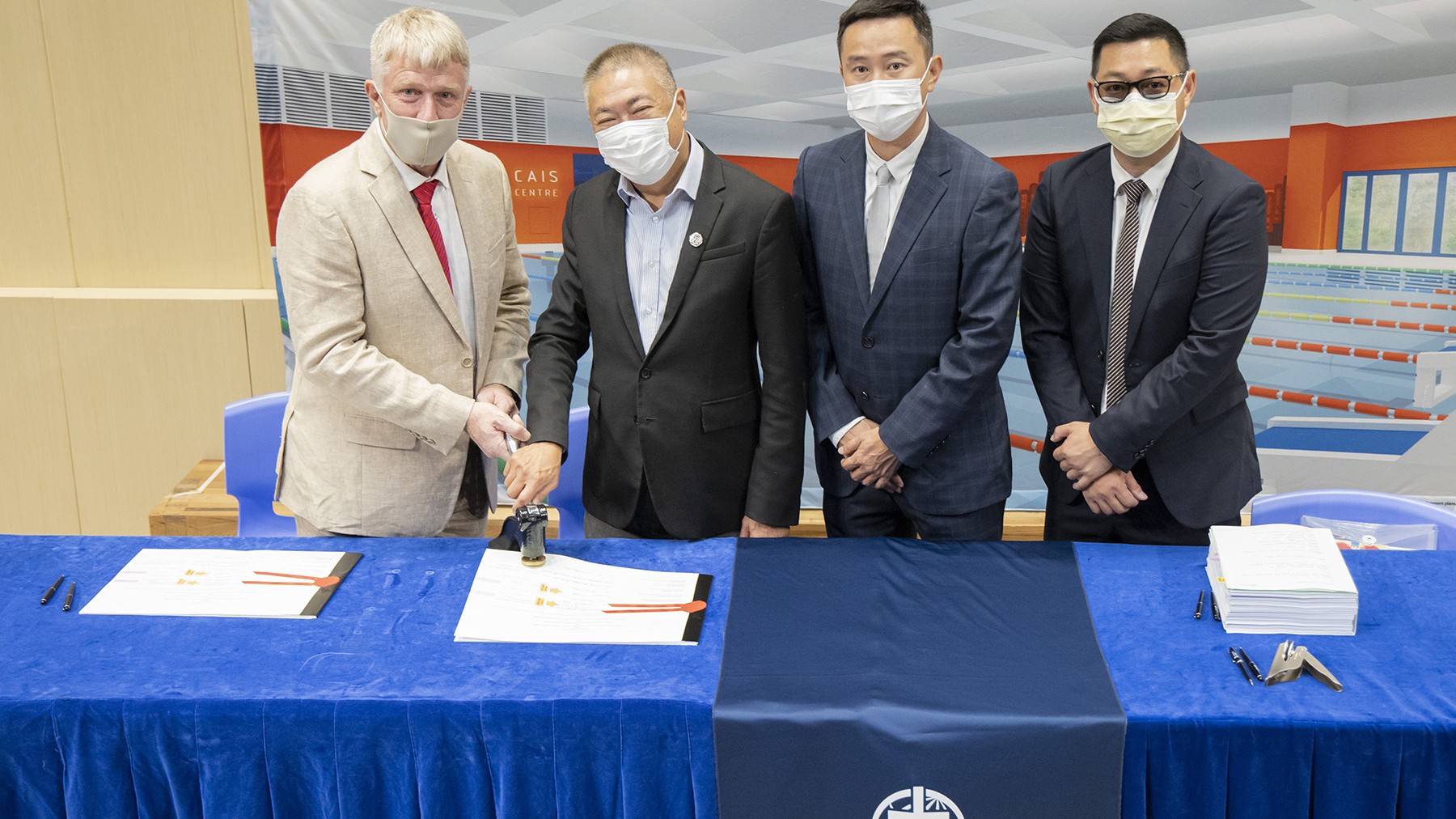Rising to the challenge of reaching new heights: Richard Nadar
Rising to the challenge of reaching new heights: Richard Nadar
May 11, 2021
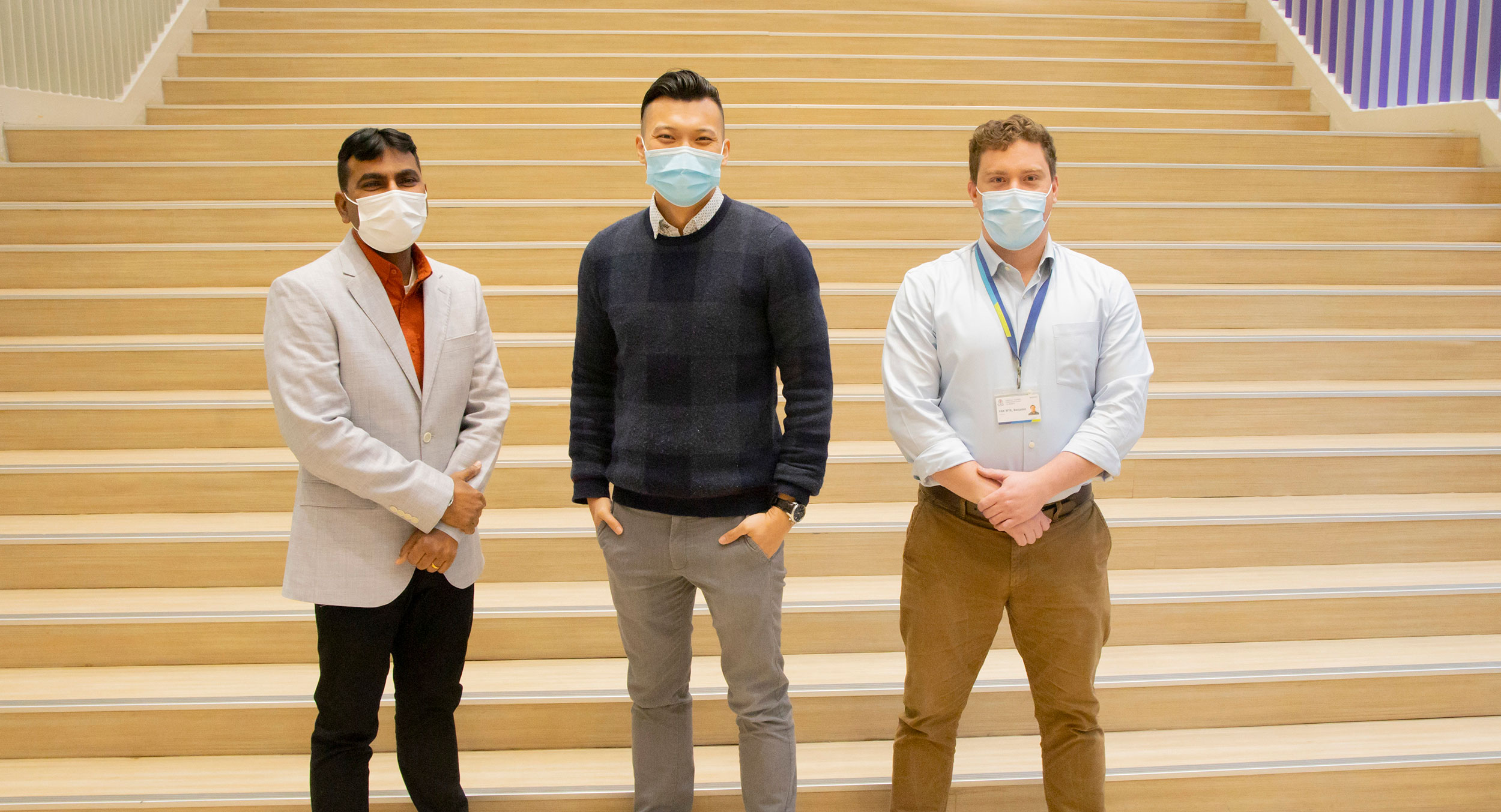 Have you heard the plan?
Have you heard the plan?
No, not the dinner or weekend plan, although a nice chicken shawarma meal or a weekend getaway does sound enticing.
We’re talking about the plan Richard Nadar, CAIS Humanities teacher, makes to help students reach new heights.
That was also the thinking behind of the experienced educator.
“Things we teach in the classroom obviously are constantly evolving and as teachers, we are here to teach and learn simultaneously, ” Richard says, explaining what’s behind the scene of his daily job.
“The process is part of what makes teachers, teachers.”
“Take Covid buzzword ‘languishing’ as an example, it’s very relatable to what we’re experiencing right now and that’s not a new word, but rather it’s a word that helps us define the moment when we are feeling ‘meh’ – the middle ground between flourishing and depression.”
“And my job, along with other teachers here is to teach and create a safe space for students to grow and learn new ideas and to find solutions to get around feeling languishing, for example.”
The best part
“The best part of the job is to expose students to ideas or experiences that they haven’t had so far. I am always on the lookout for opportunities in expanding the horizons of our students’ mind and experiences. I love helping students build frameworks of thinking in their lives.”
The pandemic has not only elevated our digital skills, it’s also lifting teachers’ multimedia skills. A while back Richard created a simple website for an annual school event Spiritual Emphasis Days (an annual activity celebrating the Christian faith of the school). The website pulled content from paper and presented it on a digital screen. It was simple but an effective way to increase engagement with digital savvy students. From Zoom lessons, video recording and editing, to building website, Richard, like many other teachers, have been given a crash course on mastering the skills to ‘repackage’ his teaching style with a view to influence the learning community.
“The pandemic has had a huge impact on India, my home country, and it was a tough time for my family here and overseas. While the emotional stress can be overwhelming, the experience was a reminder for me to look for clarity, slow down and appreciate the things I’d previously taken for granted, which was also a message I’d like to get across to my students.”
“Letting students take control of their learning is another thing that I am glad to see students picking up.”
He himself is a good example of forging ahead with continued personal and professional growth. From jumpstarting student’s interest in religious studies through podcasts to creating video series for stimulation-starved school community, he is literally showing how to regain control and make things happen, despite pandemic challenges. Plus, he is also undertaking a Master’s degree in International Educational Leadership and Change.
Looking on the bright side
The experienced educator who used to be a coach for educators in Mumbai, India, had chosen to relocate to Hong Kong 17 years ago and has been with CAIS since its start.
Born and raised in “India’s Financial Capital”, Richard suggests that Hong Kong students can often be shy at times when they could be more articulate to voice out concerns or questions and find solutions with their peers through discussions.
“Whereas students in India are very engaged and they are really active in classroom discussion which I think we can all learn from.”
“On the other hand, things that I think they can learn from Hong Kong students is the desire to cultivate skills in other areas apart from academics such as sports, music, dance,etc.”
Richard, when reflecting on things that he will (try to) keep doing from this past year, sees the opportunity to continue leveraging educational technology in learning.
“Thinking out of the box when approaching various things is important. I would like to incorporate some new learning technologies that I equipped myself with this year and work on it.”
The educator who has deep experience in connecting students believes that meaningful education is accompanied by informal chats and conversations outside the classroom which can’t be accomplished behind a computer screen.
“Engaging with students not just on academics but on the daily affairs of life truly opens my eyes to the reality of genuine human experiences. This cannot be ignored.”
And for him, food opens the door for him to communicate and learn.
“If at all I’ve to leave Hong Kong for any reason, I would truly miss ‘Yum Cha’. It’s not food rather it’s about the wonderful conversations that happen, which makes the food enjoyable.”
“I have had the privilege of spending some good amount of time with people conversing on different topics such as meaning and purpose of life, existence of God, moral dilemmas as well as health issues.”
“Like the community where I grew up in, people here in Hong Kong are very social.”
“Conversations just happen naturally and food really provides the connectivity that reaches people from all sorts of backgrounds, ethnicities and ages.”
Communication is key
“If my past experience has taught me anything, it’s not what things or programs we do but how we do them.”
An IoT (Internet of Things) device Scribit is the latest gadget students have gotten their hands on during which they need to use the “printers for walls” robot and turn vertical surface into an interactive canvas.
“Students often get the most out of the experience when working and communicating with others and in the process they better understand each other through varied perspectives and that reciprocity is the catalyst for effective communication, an important skill for everyone to have under their belt.”
And this is also one of the areas he wished he would focus on developing if he was given another chance to start over and work at it again but better.
“My career relies heavily on good communication with students, parents, colleagues. It is something I’d love to spend more time to work on it, either at work or in my personal life.”
As he gets busy helping students reach new heights, his passion for education has also led him to take up more challenges.
The multi-lingual educator who speaks English, Hindi and Tamil (and Cantonese is the next to conquer) is excited to wear another hat in the next academic year as he becomes the IB teacher for Theory of Knowledge (one of the core subjects in the IBDP curriculum).
“Despite the challenges we have, it hasn’t damped our spirit and the new curriculum the school is delivering and my new role is like how we try new things to get through the “unlockdown” stage, just like what other countries are currently doing.”
CAIS bids farewell to Consul General of Canada in Hong Kong
CAIS bids farewell to Consul General of Canada in Hong Kong
May 12, 2021
CAIS Head of School Mr Richard Vanderpyl, Vice Principal Mr David Best and Assistant Principal Mr Daniel Schick visited the Consulate General of Canada in Hong Kong and Macao office on 11 May to bid farewell to the outgoing Consul General Mr Jeff Nankivell.
Mr Nankivell who is fluent in Mandarin became the Consul General of Canada in Hong Kong and Macao in August 2016 and has connected with CAIS on the education front at multiple occasions, as part of his work engaging with both Canadian diaspora and local community to strengthen ties between Canada, Hong Kong and Macao.
On behalf of CAIS, Mr Vanderpyl, Mr Best and Mr Schick presented a Chinese calligraphy set as a token of appreciation to thank the support of Mr Nankivell to the school community in the past five years and wished him and his family all the best.
Rising to the challenge of student leadership: Hannah Tam
Rising to the challenge of student leadership: Hannah Tam
May 11, 2021
The CAIS Peer Tutoring Club (PTC) initiative understands the anxiousness of students getting the help and support when they need it the most.
It is a network established to strengthen students’ academic performance, as well as to strengthen the bonding and build a support network among some 1400 students in school.
Coming off the back of the founding student Hannah Tam’s own personal experience struggling to get support when needed, Hannah has initiated to connect and enhance learning experience for students by providing peer academic support, and hence the birth of PTC.
The Grade 10 student is also looking to expand current in-person academic support to virtual “on-demand” tutoring sessions which share one overarching goal: to help students achieve personal and academic growth.
As the school transitions back to in-person learning, we spoke to the student leader to learn about how the idea came alive, the success and setback, and thoughts on student empowerment.
Tell us more about the concept of the Peer Tutoring Club.
The main goal is to enhance the learning experience of students at CAIS as well as provide for them a dedicated study space where younger students can get academic help from senior student tutors while learning to be independent, productive learners in a relaxed environment.
How did the idea come about?
My peers and I felt like the study period afterschool has not been maximized. Getting academic support without having to schedule a time with a teacher afterschool was a pain-point for us.
Meanwhile, I was hoping to be more involved with school’s activities and clubs, and so I took the lead and asked my teachers for advice on how to start a new club.
Having received the support from the school and teachers, I then put the idea into practice and moved the concept into reality.
What are you trying to achieve through the Peer Tutoring Club?
I hope that through this club, students who receive tutoring from us will be able to improve their academic performance while having the opportunity to connect with their peers regardless of their grades. Along with those goals in mind, I also hope that this club will be able to improve the school community’s relationship through the interaction of older and younger students.
Tell us how did you translate your concept into reality?
At first, when this idea came into mind, I decided to turn to my older sister for advice, as she had more experience in the participation of school clubs than I. She suggested that I write up a proposal letter to the school and ask for additional advice and instruction from other teachers. However, before I did all that, I had also put out surveys for the student body to see their opinions on a club such as PTC and gathered data responses which turned out to be very positive.
I then created a list of students who had shown interest in joining the club and submitted my proposal which was approved and hence, the Peer Tutoring Club was born!
What kind of support have you received from the school when experimenting with this idea?
My teachers have been really supportive throughout the whole process, from developing the concept, promoting and getting other students involved. PTC wouldn’t be possible without them!
How would you suggest the school to leverage students’ power to make an impact within the school and beyond?
I would suggest that the school could be more open with the concept of students starting their own clubs as I had no idea how to or whom to reach out to for my proposals and queries. I believe that clubs are a great way for students interact with one another and can largely help grow students’ skills beyond the academic side. In my opinion, if the school could develop a system for students to experiment their own ideas, it would be a wonderful way to enhance our engagement with the school.
Share with us the successes and setbacks you have on this initiative?
I would say that the club’s approval in itself is quite a success to myself already, as I was unsure whether how the school would react to my proposal. Seeing some students becoming regulars at the PTC and having parents contact me for more information about the tutoring is something that I would say is successful as well. Nonetheless, with successes comes setbacks, trying to balance my studies with the management of this club was a new concept to me as PTC is the first ever club I had ever founded. I had to learn to adjust my study schedules afterschool and also improve my time efficiency with procrastination.
How would you make Peer Tutoring Club possible during online learning period?
I was planning on making a website in which students would be able to get “on-demand” support from tutors during a set period of time along with sections for each subject with useful class notes. But I would also need to recruit more members to help realise the idea which I believe many would find it useful.
What skills have you developed?
Through the Peer Tutoring Club, as the founder and current president, I was able to pick up many life skills in which I am sure would be extremely valuable in the near future. For example, I have learnt time management and leadership skills, as well as being flexible and putting my knowledge into application during the tutoring sessions.
Reminiscences of an IB education
Reminiscences of an IB education
May 11, 2021
Hae In Kim is a Grade 2 homeroom teacher at CAIS and as a student studied the IB curriculum which will be available for the final two years of high school students at CAIS starting academic year 2021/22.
We interviewed Hae In about her experience with IB education and how the impact it had on her professional growth and her subsequent career at CAIS.
Which IB courses have you completed?
International Baccalaureate Diploma Programme (IBDP).
Describe your IBDP experience in one word.
Invaluable.
How was your IB exam?
The IB exam is an experience you will never forget. It was like a running a marathon – absolutely exhausting, but exhilarating at the same time. Exhausting, because the exam was 3 weeks long and you would have 2-3 exams every day. Exhilarating, because you would be on the home stretch towards completing the program. For 3 weeks, you would pour out everything you’d learned in the 2 years of the program which exhausted you mentally and physically, but your hard work would be rewarded.
What made you move from Hong Kong to South Korea and back to Hong Kong?
I came to Hong Kong when I was 6 years old and absolutely loved my experience here. Sadly, our family had to move back to Korea under various circumstances when I was in grade 10. My teachers back then were an important influence on my personal growth. They were role models I would always look up to and inspired me to pursue a career in education. Upon graduation from university, God provided the opportunity for me to apply as a teacher at CAIS. Here I am today, teaching second grade in the school that I love dearly.
Share your experience on the academic culture of doing the IB program?
One thing that stood out to me regarding the IB program is that it is very well structured and organized. When I first started the program, I was able to see the big picture of what the 2 years would look like as well as the details of each subject and each project/assignment. This allowed me to have a clear direction towards having a successful experience. The structure was also very flexible, because I found a lot of freedom and room for creativity. The IB program allows you to explore your own passions and talents, meaning that you make each experience your own. It is definitely rigorous and challenging, but when you find your pace and the methods that work for you, you are positioned to be successful.
What role did your parents play as you worked on the program? How was the working relationship between school and parents?
I went to a boarding school, so my parents were not physically present with me. However, they provided me with the emotional and spiritual support that I needed, which helped me to push forward when I had no motivation or strength to keep going. They reminded me that IB was not everything in my life and helped me to understand the importance of resting and taking care of myself.
The school provided relevant information regarding the IB program for the parents (before and during the program) which helped them understand how they could best support their children.
How did your school promote critical thinking and open-mindedness along with that of the Christian faith?
The teachers established a safe environment for us to ask hard questions and to challenge each other’s thinking in a respectful and loving manner. They helped us to establish our identity in Christ as well as biblical values, which allowed us to separate our emotions from our academic progress. Our value and identity did not depend on our grades nor on the fact that our ideas were questioned and challenged by others. This allowed us to freely discuss various topics in ways that developed our analytical, communication and problem-solving skills. I believe that this is a ley feature of the IB program, because it equipped us in knowledge and skills for us to academically engage with the world while bringing our faith into this interaction.
How were you able to cultivate strong collaborative peer relationships during the IB program? How or why is this important?
Cultivating a strong collaborative peer relationship is one of the most important sources of support and success in the IB program. Your peers know exactly what you are going through, because they are also going through it as well. They can empathize with you and support you in ways that teachers and parents cannot. You can also create “academic synergy” with your peers, as they are also good resources and teachers. This is especially helpful with peers who have different classes.
Another important aspect is to build collaborative relationships with students who are right above your grade level and right below your grade level. Your “seniors” will have countless information and advice to give to you as they experienced everything that you are experiencing in advance. You can do the same for the students below your grade level.
Biggest challenge when studying IBDP?
Time management was the biggest challenge for me. In IB, you have 6 subjects plus TOK (Theory of Knowledge), CAS (Creativity, Activity, Service), and the EE (Extended Essay). You also need to have a life outside of school to take care of yourself and find time to socialize. On top of that, you also need to go through the process of college application. You need to learn how to manage your time so that you are physically, mentally, and emotionally healthy and you can push forward with your academics and college application. It is also important to know your priorities and values.
In closing, what’s your advice for students who are contemplating taking the IB program offered at CAIS?
The IB program is challenging, but definitely rewarding and worthwhile. I suggest students to develop self-discipline skills irrespective of the curriculum that they are pursuing. These are important skills that we all need to master for both personal and professional growth.
Rising to the challenge of unlocking students' leadership potential
Rising to the challenge of unlocking students’ leadership potential
May 11, 2021
Leadership theories are meaningless unless they can inspire students to grow, lead and make an impact on our community.
That’s also the takeaway message of the CAIS Social Justic Club (SJC) – an extra-curricular activity led by students to effect changes and raise awareness of social and cultural issues leveraging their leadership skills.
Social Justice Club has been with CAIS since its establishment, and it successfully empowers students to be changemakers, serving various social organizations and underprivileged communities from the get-go.
The success of SJC did not come overnight. It is when its impact and reputation snowballed into a bigger concept that propelled it to reach a new height – and CAIS Bespoke Leadership Program was born.
The school community is excited to see how the Program will unfold. Here, the Assistant Principal of CAIS, Daniel Schick, describes the initiative in his own words.
“A leader is one who knows the way, goes the way, and shows the way.” – John Maxwell
Our vision is to raise student leaders who will impact our school, their friends, community, Hong Kong and internationally.
Through a 3-year leadership program starting from Grade 7, CAIS connects students with critical life skills such as communication, problem solving, empathy and creativity that prepare them to take the plunge into the exciting world of opportunity.
Students, through the CAIS leadership courses, will learn that they need to do, to act, to serve, and to be instruments of change.
This is very exciting, and while it may sound like a very lofty goal it is actually very simple in practice. The students identify areas of the school and community that they would like to help, and devise plan to support and see them through.
Since the beginning of CAIS we saw increasing number of students serving throughout Hong Kong, feeding homeless, teaching English to underprivileged children, working with elderly citizens, and being a light to all around through SJC. By starting a dedicated leadership training from grade 7, we will be opening this arena to our younger students who would have the opportunity to embrace challenge and take action toward a better world.
Cultivating leadership skills among young students is important because they are encouraged to be open-mined to take risk and explore new ideas while developing their communication skills.
Grade 7 students will start with “Community Leadership” whereby they develop social strengths through working closely with their peers to support school events. This cohort of students will also enroll in the Hong Kong Awards for Young People program (AYP) and take on challenges focusing on physical recreation, skills, expeditions and service.
When students progress to Grade 8, they will take part in a “Personal Leadership Development” program in which they will be challenged in significant areas of personal growth. Students will be connected to Toastmasters International and learn skills through a series of activities boosting communication skills. Meanwhile, students will be registered for the AYP bronze level program which is the Hong Kong equivalent of the Duke of Edinburgh Award, and we aspire to not only see all our students finish this level but consider taking on the silver and gold levels on their own throughout high school.
Grade 9 students will undertake “Global Leadership” program which will expand on their previous experience in Grade 7 and 8 and scale up their involvement in projects and school events including annual Discovery Days trips taking place in Hong Kong, Asia and around the world.
This leadership journey is a time for students to grow, explore, and expand their area of impact. We envision our students becoming articulate, discerning, well-trained leaders and changemakers.
Speaking of the Covid impact on our learning, one thing that I would want our students to keep on experiencing in 2021 and onward is being self-directed in their learning.
We are so thrilled to see many positive attributes emerging from our students' resilience and ability to harness technology to engage and communicate. If online learning has taught us anything, it is learning to be resourceful and take control of your own learning and be creative!
Learning can take place anywhere and shouldn’t be limited in a traditional classroom. The opportunity of trying different things and doing things differently are some of the most wonderful things happened as a result of Covid, for both students and teachers.
Rising to the challenge of getting the ball rolling for STEM learning
Rising to the challenge of getting the ball rolling for STEM learning
May 11, 2021
Our teachers were recently invited by the school to share updates on their latest professional accreditations and accomplishments that they attained as part of an annual reminder encouraging everyone to be a lifelong learner.
Of all the exciting stories we celebrated, it’s the vision for a better-connected science learning community carved out by Computer Science Teacher Chris Siu that got us into a great rethink.
Chris is a high school teacher who’s also teaching the newly created Digital Literacy and Computer Science courses – a pathway for students exposing them to a tech-driven future – and he is about to crack things up a notch and create as many opportunities as possible to engage students in computer science.
“Computer science or technology doesn’t have to be complex or costly to be engaging,” said Chris.
“And unlike our conventional thinking, we should put our focus on skills and knowledge development and what technology offers to students rather than the hardware or device itself.”
“Coding is today’s language of creativity. All our children deserve a chance to become creators instead of consumers of computer science,” he further elaborated with a quote from thought leader and prominent computer scientist Maria Klawe.
“It’s also about introducing to students the importance of being an ethical user of technology at an early age.”
“Making sure students are armed with skills that are helping them cope with changes and uncertainties in the future are another key focus here.”
A while back the school invited experienced STEM teachers to visit CAIS for a discussion and explore ways to incorporate fun and cool gadgets and software in the classroom, thereby adding value to existing programs. During the discussion, Chris and other STEM teachers were introduced to various tools and ideas, some of which have already been used in the school, while some would require minor twists to maximize and enhance current learning programs.
AI(Artificial Intelligence), IoT (Internet of Things) platform Blynk, open-source electronic prototyping platform Arduino/micro:bit, and drone programming for example, are some of the innovative programs that can engage younger students without a complicated set-up, and can be adjusted as sophisticated as an advanced learner would want to, or as simple as a beginner would like it to be.
“Introducing these tools is a step to flesh out the idea for a more refreshed approach to learn tech and science.”
“The idea of getting these new learning systems in place has been flowing around for some time and there’s no better time than now to connect students with tech.”
“The past year was an unprecedented year which upended norms and rhythms for both teachers and students.”
“It taught us to be ready to transform our way of learning and working, find ways to get over with Zoom fatigue or make swift transition between in-person and online learning or simply make things happen using what we have.”
“While the pandemic gives us a New Normal which we are already living in and embracing it, it’s equally important for us to continue to be open-minded and stretch our brain.”
He is hoping to make use of these platforms including Micro:bit, Scratch, Python and MIT App Inventor which have been introduced to students to complement the overall learning experience.
“Having students really engage with, and talk about science and tech help build their confidence in pursuing further study or a career in STEM.”
“By helping connect kids with tech gives them perspective and in return, they develop a deeper relationship and understanding of the impact brought by STEM learning.”
The former expat educator who has over 20 years of experience in education relocated from the UK to Hong Kong in 2010 and then joined CAIS.
“One thing that got me stoked in engaging with tech was that we were always learning – the learning curve never ends.”
“It’s great to see students develop an interest in STEM, and knowing our alumni who have chosen to pursue a career in the field is even more rewarding.”
It’s a timely start for Chris to get the STEM program up and running to coincide with the planning of the CAIS Phase II STEM innovation centre as he sits on the committee to help get the idea off the ground.
The building next to the main school campus is working on a new playground for STEM learning which will provide learning spaces for 3D printing, laser cutting, AR/ VR experience and robotics.
As a teacher who’s currently teaching AP (Advanced Placement®) Computer Science Principles and Computer Science courses under the Alberta curriculum framework, Chris will also teach the AP Computer Science A course in the coming academic year. He has also gained the accreditation to teach IB Computer Science course.
CAIS is also registered with the Cisco Networking Academy, providing support for students who are keen to get involved with computer science such as completing IT Essentials online course in high school, a move that befits the potential expansion of the STEM program at CAIS.
CAIS re-establishes the House System
CAIS re-establishes the House System
May 3, 2021
High school students are overjoyed to be part of the House System relaunch where House names and colours have been revealed, denoting a start to strengthen community spirit among students.
All high school students have been allocated in one of the four Houses: House Alyward, House Simpson, House Taylor and House Yu whereby a series of activities aimed at establishing connections and bonds across grades will be organised throughout the school year.
One of the main strengths of the House System is giving students of all ages the opportunity to work together, creating a truly diverse environment through a range of activities such as Dodgeball Competition, Intramural Sport Competitions, Trivia Nights and Drama Show Competitions to win the “House Trophy”.
The school is looking to extend its House System to the Primary grades.
Future-proofing students
Future-proofing students
April 23, 2021
 In 1991 American scientists began an amazing experiment, the world’s first ‘Closed Biosphere’ enclosure. The size of two and a half football fields, it remains the largest closed system ever created. A ‘closed system’ is one where all natural elements (air, water) were artificially controlled, that is, no exposure to the natural environment. Plants and trees were grown within this artificially controlled environment. After several years the scientists found that the plants and trees suffered from ‘etiolation’ which means the plants had weak stems; smaller, sparser leaves and a pale yellow colour. The trees suffered from a lack of ‘stress wood’, normally created in response to winds in natural conditions.
In 1991 American scientists began an amazing experiment, the world’s first ‘Closed Biosphere’ enclosure. The size of two and a half football fields, it remains the largest closed system ever created. A ‘closed system’ is one where all natural elements (air, water) were artificially controlled, that is, no exposure to the natural environment. Plants and trees were grown within this artificially controlled environment. After several years the scientists found that the plants and trees suffered from ‘etiolation’ which means the plants had weak stems; smaller, sparser leaves and a pale yellow colour. The trees suffered from a lack of ‘stress wood’, normally created in response to winds in natural conditions.
Why do I share this with you?
I came across a passage of Scripture in Isaiah 61 where the Prophet Isaiah when describing the people of Israel. Verse 3 says ‘to grant those who mourn in Zion – to give them a beautiful headdress instead of ashes, the oil of gladness instead of mourning, the garment of praise instead of a faint spirit, that they may be called oaks of righteousness, the planting of the LORD, that he may be glorified.’
Christian Alliance International School, as a Christian school, is not a ‘hothouse’ nor is it an artificial environment that attempts to protect its students from every difficulty or from society. To do so would not only give students a false sense of security in the world, a lack of preparedness for society, but also leave them weak and frail in the face of the many ‘buffeting winds’ in society.
Age appropriately, students are taught about the many issues they face each day and will face as they leave for University or work. To not do this would undermine our school Mission Statement which says that we are to ‘cultivate learners with knowledge, skills, integrity and discernment’. That is why our teachers help students develop resilience, to learn about making the right decisions even when you are in the minority, and as they grow older, discuss issues they are going to face in life. Our Guidance Counselling staff do a magnificent job of equipping many students with the skills they need to become stronger students mentally, emotionally and spiritually.
Our prayer is that Christian Alliance International students leave equipped to be described as ‘oaks of righteousness, the planting of the LORD, that he may be glorified’. Join with us in partnership with Christ to equip your children.
In Christ
Richard Vanderpyl
Head of School
CAIS reinforces commitment to athletic development
CAIS reinforces commitment to athletic development
April 7, 2021
CAIS has officially moved the aquatic centre idea from concept to reality following the conclusion of the foundation work contract signing ceremony held 31 March 2021.
The indoor aquatic centre is a major facility enhancement for the school and provides significant boost to our students’ learning experience and sporting capabilities. As Phase II nears its completion, the Aquatic Centre adds significant value to our existing campus. The facility is more than a swimming pool, it also gives our students an opportunity to balance physical and mental well-being, as well as create opportunities for personal growth and development.
A reflection on Easter
A reflection on Easter
March 30, 2021
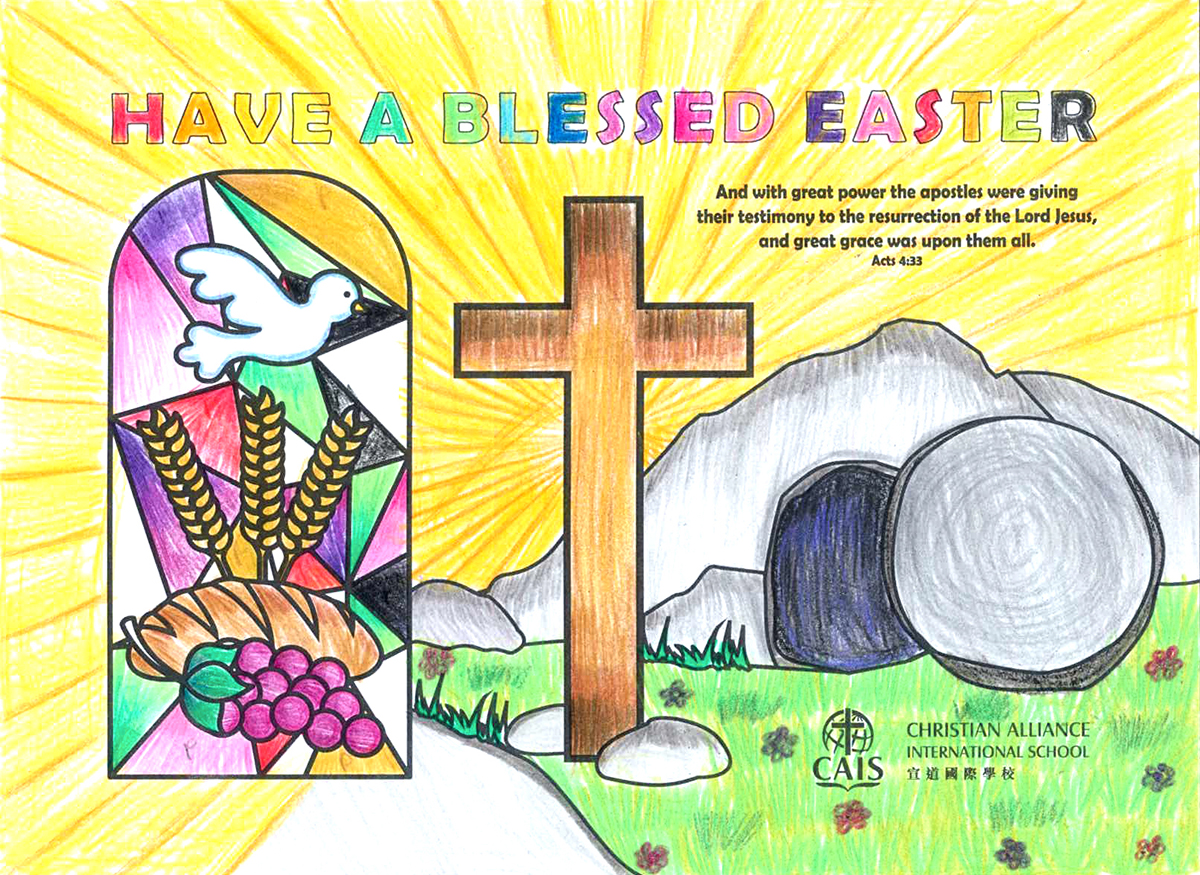 In ‘pre-covid’ times, many churches would hold two Easter services, one on Good Friday and one on Easter Sunday. Lord willing, this Easter, we will have opportunity to worship again corporately.
In ‘pre-covid’ times, many churches would hold two Easter services, one on Good Friday and one on Easter Sunday. Lord willing, this Easter, we will have opportunity to worship again corporately.
The focus for Good Friday is on the death of Christ, His suffering, and His sacrifice for us, taking the punishment for our sins. A perfect man, who died in our place to satisfy God’s wrath. That is why we call it Good Friday – good for us, even though our Saviour suffered. Is not it amazing grace that the Son of God, was willing to sacrifice himself for our benefit, as this is the only way of being made right with God.
The focus of the Easter Sunday service is on the resurrection of Christ, the fact that Jesus conquered death and rose again. This act is an essential part of the gospel story. You see, we needed Jesus to rise from the dead. He had met God’s requirement for our sins to be washed away by his death on the cross. Great! That meant that people who believed in Jesus as their Saviour could die knowing their sins were forgiven. But, if Jesus did not rise from the dead, then all we would do is die as forgiven people and that would be the end of the story!
But praise God, it is not the end of the story, the story continues. Jesus rose from the dead; therefore, we too will rise from the dead – as forgiven people! Is not that just amazing? It is vital to understand that Jesus had to be raised from the dead, in order for his sacrifice to be meaningful to us. As the apostle Paul said, ‘If Jesus was not raised from the dead then I am to be pitied the most amongst all men’ (1 Cor 15:14)
I would like you to consider the actions of those involved in this Easter event:
Jesus’ action in being willing to die as a perfect man to take our place as sinners before a Righteous God.
God’s action to accept Jesus’ sacrifice and to raise him from the dead.
And now, what about your action? In Galatians 2:20, we read, ‘I have been crucified with Christ and I no longer live but Christ lives in me. The life I live in the body, I live by faith in the Son of God, who loved me and gave himself for me.’ That is to be our response. To live for Christ. To live in a way that shows others we are new people – people who put Christ first, not ourselves, who put others first, not ourselves.
My greatest prayer and hope for the students and CAIS school community, is that we see our personal need for a Saviour, Jesus Christ, and place our trust in Him for our salvation and being made right with a Righteous God. Maybe this weekend, you and your family might try an online Easter service from one of the churches in Hong Kong to hear what the good news is all about.
Blessings and happy Easter
Richard Vanderpyl
Head of School

